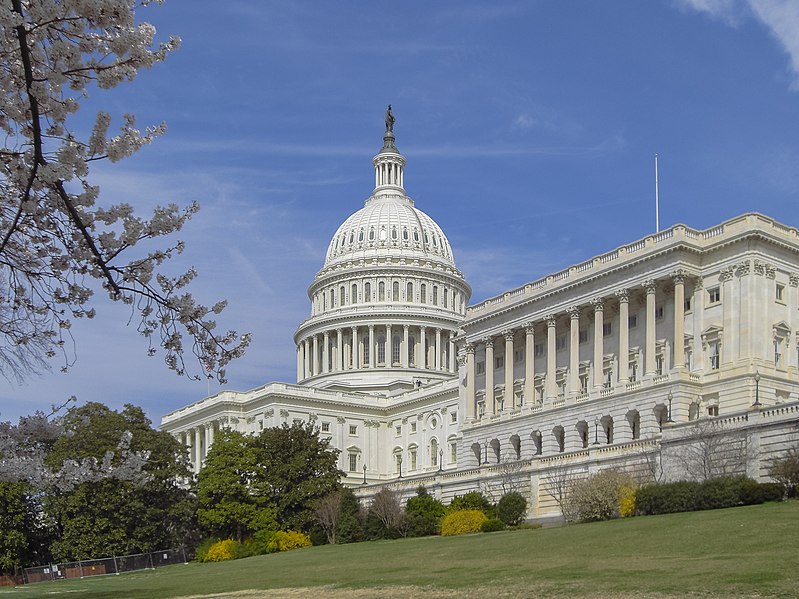The first-ever Congressional hearing focused on Decentralized Finance (DeFi) took place on Tuesday morning, shedding light on both the promise and peril of the emerging financial technology. And as expected, partisan divisions were on full display, with Republicans touting the innovation and economic freedom of DeFi, while Democrats raised concerns about consumer protection, market integrity, and the risks posed by unregulated financial systems.
DeFi generally refers to protocols running on permissionless blockchain networks to facilitate peer-to-peer digital asset transactions via smart contracts, but Tuesday’s hearing highlighted that there is no standard definition of DeFi. The committee’s memorandum for the hearing highlighted statistics showing the rapid growth of the DeFi industry. DeFi’s market capitalization currently stands at $67 billion, while the total value locked (TVL) is $89 billion.
Read more: Congress Is Having Its First Hearing on DeFi. What Does the White House Think of It?
Republicans vs. Democrats
Republicans characterized DeFi as an innovative sector with the potential to enable more efficient transactions that remove profit-taking intermediaries, albeit one with some risks for consumers. “DeFi is an essential component for a vibrant financial sector in the United States,” said Warren Davidson (R-OH). “We’ve dominated markets around the world, and it would seem particularly foolish to change course now.”
Democrats, meanwhile, emphasized the importance of consumer protections, characterizing DeFi as laden with scams in which bad actors rip off customers and evade taxes. DeFi is more complicated than traditional finance, argued Brad Sherman (D-CA). “We’re trying to create a market here for a system [DeFi] that is much worse than the system we have for honest people… it’s much better for drug dealers, much better for human traffickers, much better for sanctions evaders, which is why Putin and Iran have embraced crypto and unhosted wallets. But the real market here is tax evasion,” said Sherman.
Read more: The Harris-Trump Debate: Will the Candidates Discuss Crypto?
In calling for more regulation of DeFi, Rep. Maxine Waters (D-CA) pointedly referred to the risks encountered by the new DeFi lending company started by the sons of former president Donald Trump. Waters noted that the X accounts of of Trump’s daughter Tiffany and daughter-in-law Lara Trump were hacked on last week in order to promote a fraudulent “governance token” supposedly tied to the new venture. DeFi can “pose heightened risk of attacks, scams, unequal information, and conflicts of interests that can harm consumers and investors…we’ve seen this play out in the new DeFi venture Eric Trump and Donald Trump Jr. plan to launch,” Waters said.
GOP Witness Positions and Recommendations
Republicans, having the majority in Congress, got to choose four witnesses to speak before the committee, while the Democrats only had one. The first was Brian Avello, Chief Legal Officer of an investment fund called the Universal DeFi Holding Company. Avello advocated for light touch consumer protections through disclosure regimes and clearer accountability for controlling teams, rather than trying to apply existing financial regulations that were designed for systems with intermediaries.
Similarly, Rebecca Rettig, Chief Legal and Policy Officer at Polygon Labs, called for informed regulation that focused on risks for consumers, weaknesses in the technology itself, and bad actors operating scams. Core to her argument was that DeFi should be reframed as critical infrastructure, suggesting the Cybersecurity and Infrastructure Security Agency (CISA) as a possible regulator for the industry.
Read more: Trump Promises to ‘Embrace’ Crypto and Bitcoin in Economic Policy Speech
Amanda Tuminelli, Chief Legal Officer of the DeFi Education Fund, was more forceful in her advocacy, repeatedly arguing that DeFi is fundamentally different from traditional finance and so required a tailored regulatory approach, rather than one-size-fits-all rules. Consumer education about the risks of DeFi should be prioritized, she said, arguing that the industry has already come up with some solutions in that vein, such as fraud and scam alerts built into frontend software.
Peter Van Valkenburgh, Director of Research at Coin Center, a research and advocacy group, pushed for prosecuting fraud and contract violations after the fact, as opposed to adhering to the type of preemptive regulation that prevails in traditional finance. He argued for protecting technological innovation and constitutional rights such as the first amendment. “If making a protocol, which is a set of rules, isn’t publishing speech, then I don’t know what is,” he said.
The difference between the Republican witnesses and that of some Democrats was highlighted by the questioning of Congressman Sean Casten (D-IL), who repeatedly asked the witnesses why DeFi protocols should allow anonymous transactions. Valkenburgh and Tuminelli both argued that the liability of criminal activity should be put on bad actors, rather than developers or users. Casten, however, disagreed, saying that building a DeFi protocol that was then used for criminal activity would be “aiding and abetting of a felony.”
The Democratic Witness
Mark Allen Hays, Senior Policy Analyst at progressive nonprofit Americans for Financial Reform, advocated for applying existing financial regulations to DeFi. He stressed the importance of safeguarding market integrity and protecting investors by applying the same regulations used for other retail investment markets. He also raised concerns about DeFi’s resistance to regulation, citing the sector’s ideological stance that decentralization exempts it from regulatory scrutiny.
Read more: How to Invest In Crypto Depending on Whether Trump or Harris Becomes President
“Many hacks are inside jobs,” Hays said, arguing that many of the bad actors in DeFi actually work on the protocols themselves.
Though the hearing was framed as an opportunity for Congress to learn more about how DeFi operates, few questions seem to have been asked in the interests of open-minded discussion. Politics, however, was on full display.



